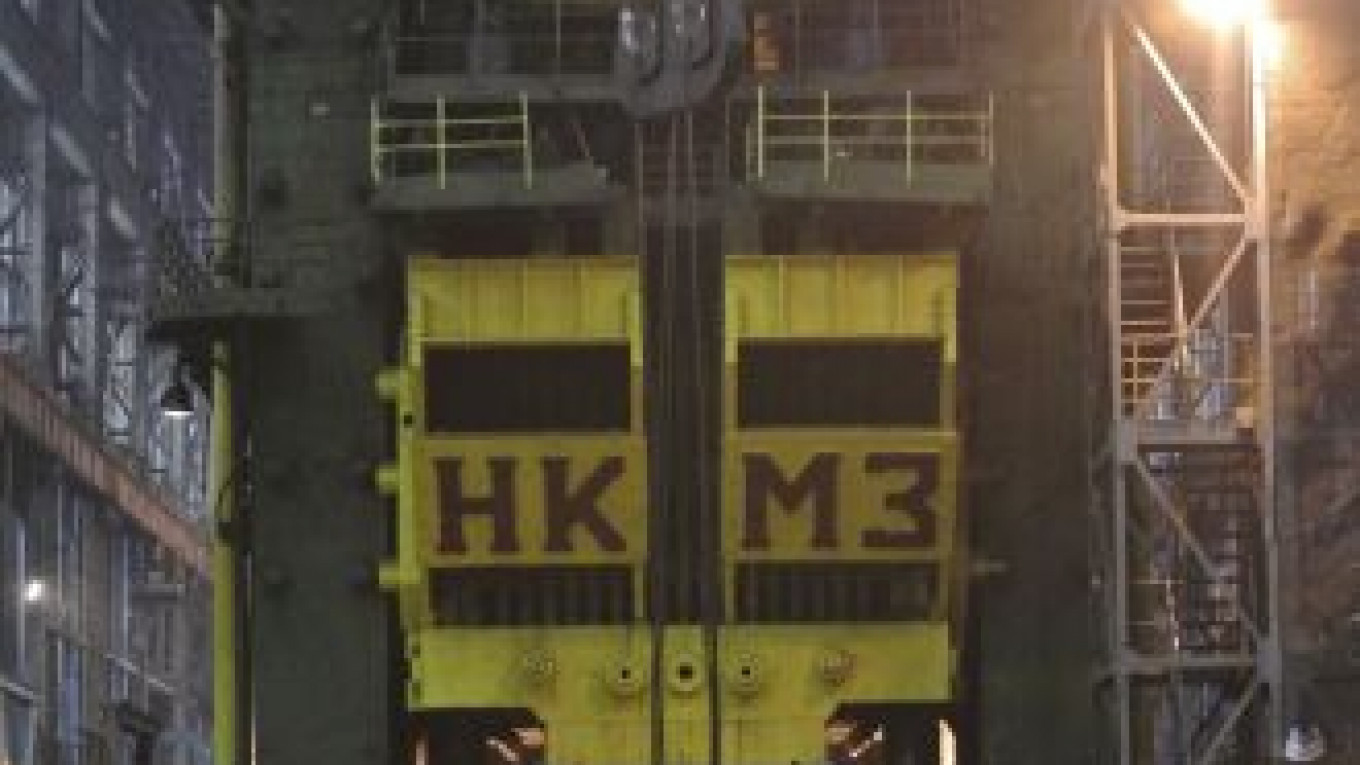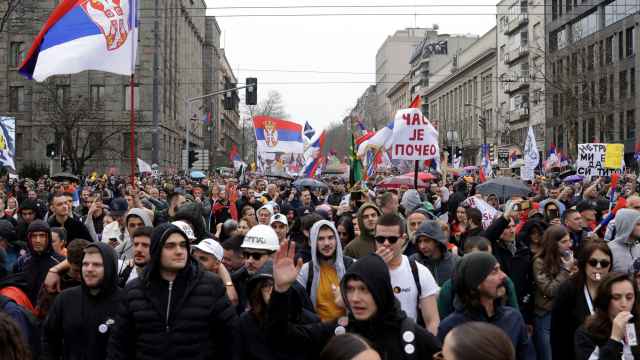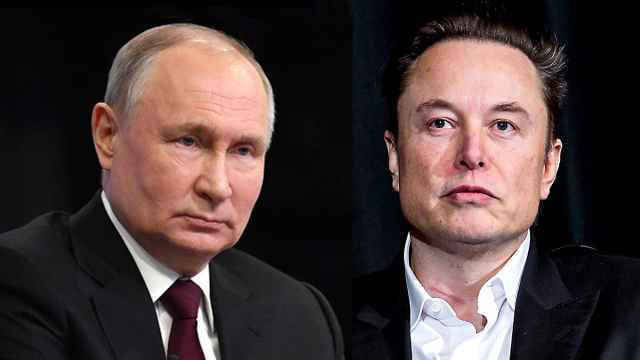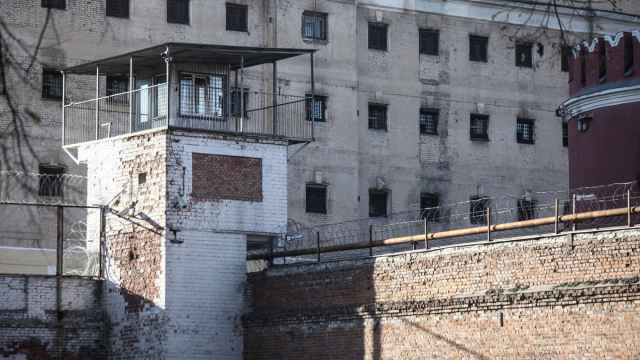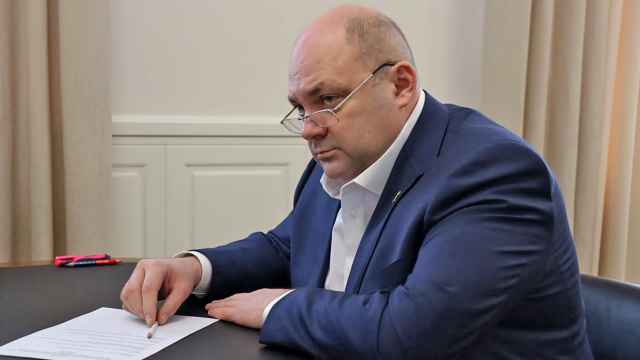VERKHNYAYA-SALDA, Sverdlovsk Region — VSMPO-Avisma, the world's biggest producer of titanium, expects profits to rise 25 percent to some $250 million this year due to robust demand from the aerospace industry, the firm's key customer.
While industrial metals-producing peers struggle with rock-bottom prices, business is booming for VSMPO with the recent signing of potentially lucrative deals with U.S. firms Boeing and Alcoa.
The strength and low density of titanium, named after the all-powerful Titan gods of Greek mythology, mean the silver-colored metal is highly prized by aircraft manufacturers, a market seen growing up to 10 percent in 2013.
A trend toward using more lightweight composite materials for building planes is also working to VSMPO's advantage, according to chief executive Mikhail Voyevodin.
//Planes Mean Sales
"As aluminum and steel corrode with composite material, titanium consumption is increasing sharply," he said, pointing to Boeing's new 787 Dreamliner which uses 20 tons of the metal compared with two tons in the older 737 model.
VSMPO, which supplies 37 percent of the global aerospace industry's titanium needs, sees demand from that market growing 5 to 7 percent a year to more than 85,000 tons by 2018.
In November, it signed a memorandum with Boeing to build a second factory together in the Urals, Russia's industrial heartland, where VSMPO has been based since World War II.
With Boeing and Airbus seen boosting combined annual aircraft production from 1,200 to 1,600 by the end of the decade, the former's move to secure supply makes sense, said Peter Arment, an analyst at U.S. brokerage Sterne Agee.
"Large manufacturers … are going to need to … support aircraft production not only three years from now, but 15 to 20 years from now," he said.
The value of the deal was not disclosed, but the U.S. firm forecast that it would spend about $27 billion on Russian titanium and aerospace design-engineering services over the next decades.
"Our friendship with Boeing has grown with time," said VSMPO's minority shareholder and former president Vladislav Tetyukhin, adding it was cemented when the Russian firm held off penalizing the company when orders fell steeply in the wake of the attacks on New York's World Trade Center in 2001.
"U.S. titanium suppliers were imposing penalty after penalty on them, but we did not, understanding that things had already turned rather sour for them … I think they appreciated that," Tetyukhin said.
//Titanium Valley
Tetyukhin, 81, who smelted the Soviet Union's first titanium ingot, acquired with a partner more than 80 percent of VSMPO's shares in the 1990s, before selling most of his stake to what would become Rostec, the state industrial and defense group.
Before the state acquisition, the firm had been preparing to go public, a plan still on the cards in the medium-term.
"An IPO might happen in two, three years once we have completed our key investment projects and if the markets would favor it, but not earlier," Voyevodin said at VSMPO's Urals headquarters.
The complex dominates the center of Verkhnyaya-Salda, a single-industry town 1,800 kilometers east of Moscow, most of whose 45,000 inhabitants depend on the firm for their livelihoods.
However VSMPO, whose debt will rise to about $1 billion this year after it spent $200 million on investment projects, has set its sights on continued expansion beyond the town.
In October, it formed a joint venture with Alcoa to collaborate on manufacturing high-specification products, such as landing gear and forged wing components, at the U.S. firm's facility in the Russian city of Samara.
The Alcoa plant has two presses with combined capacity of 105,000 tons per year, according to Tetyukhin.
"For us, this joint venture is both a contingency plan in case one of our units fails and also an expansion because we were faced with the possibility of building a new mill given the outlook for titanium demand," he said.
A Message from The Moscow Times:
Dear readers,
We are facing unprecedented challenges. Russia's Prosecutor General's Office has designated The Moscow Times as an "undesirable" organization, criminalizing our work and putting our staff at risk of prosecution. This follows our earlier unjust labeling as a "foreign agent."
These actions are direct attempts to silence independent journalism in Russia. The authorities claim our work "discredits the decisions of the Russian leadership." We see things differently: we strive to provide accurate, unbiased reporting on Russia.
We, the journalists of The Moscow Times, refuse to be silenced. But to continue our work, we need your help.
Your support, no matter how small, makes a world of difference. If you can, please support us monthly starting from just $2. It's quick to set up, and every contribution makes a significant impact.
By supporting The Moscow Times, you're defending open, independent journalism in the face of repression. Thank you for standing with us.
Remind me later.


